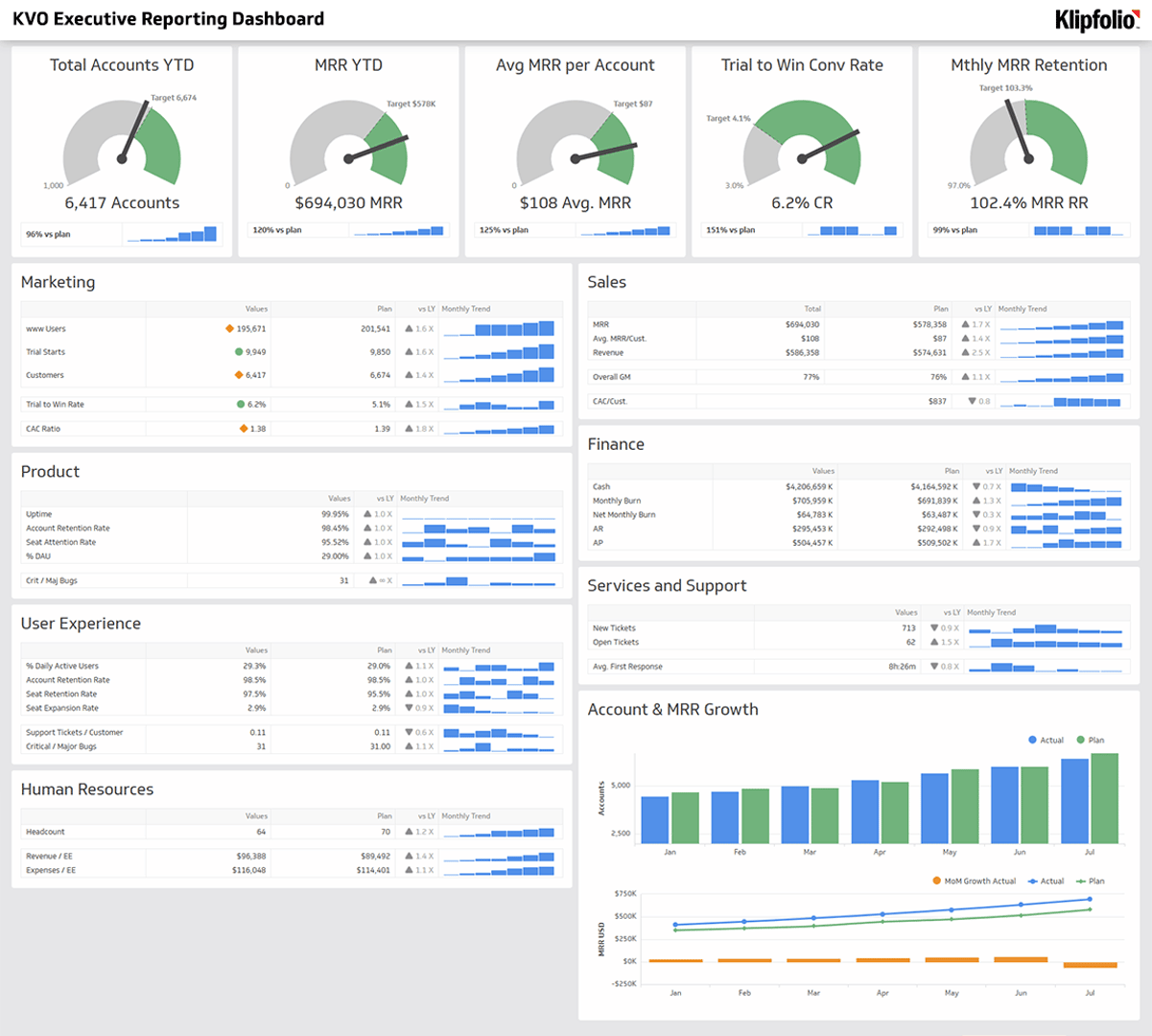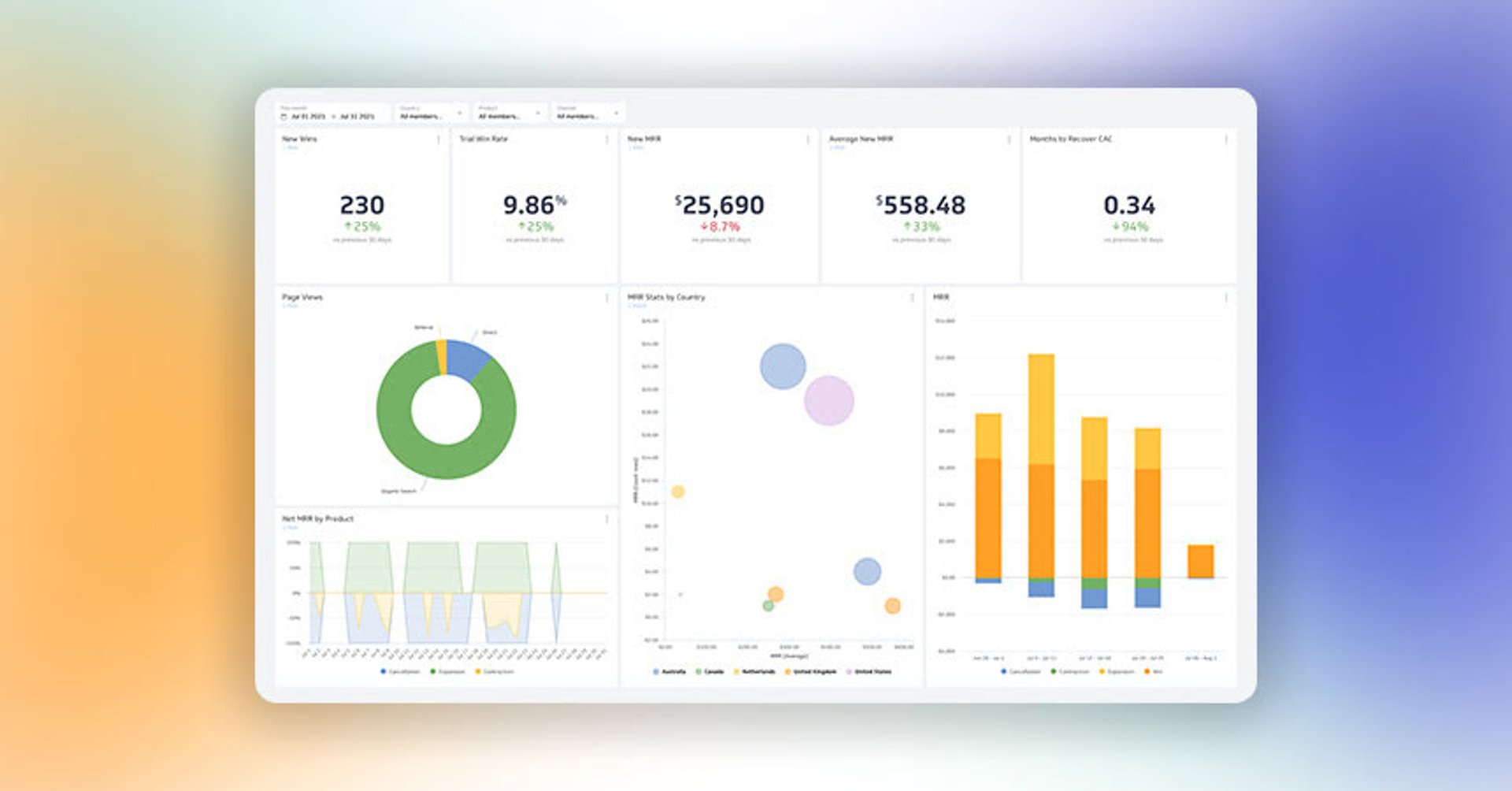Why Are KPIs Important?

Published 2025-10-06
Summary - In today’s data-driven world, numbers matter no matter where you work. One of the most effective ways businesses use data is through KPIs — key performance indicators. You might be asking, “Why are KPIs important?” We have the answers.
The reality is that in today’s data-driven world, numbers are important no matter where you work. One of the most common ways to work with data and numbers is KPIs, or key performance indicators. Now you might find yourself asking, “why are KPIs important?”
We have the answers.
What are KPIs and why are they important?
Key Performance Indicators are measurable values that show how effectively a company is achieving key business objectives.
KPIs are important because they provide a clear way to measure progress toward your goals. You can then compare your KPI results against benchmarks — such as industry standards, competitor performance, or your own historical results — to evaluate how well you’re doing.
Implementing KPIs in your company means you can set goals, create a strategy to reach them, and measure performance along the way.

Why are KPIs important?
Here are four core reasons why KPIs matter for businesses:
- KPIs strengthen employee morale
- KPIs support and influence business objectives
- KPIs foster personal growth
- KPIs are critical for performance management
KPIs strengthen employee morale
This is one of the most under-utilized benefits of KPIs.
A strong company culture is key to performance. A culture that motivates and supports people will outperform one that does not.
In this sense, tracking KPIs isn’t just about measurement — it’s about acknowledging employees’ hard work and building accountability.
At our company, everyone has KPIs they’re responsible for. When we hit those numbers, there’s a sense of ownership in our work and tangible evidence of each person’s contribution to the team.
As a company grows, employees can feel disconnected from overall success. Clear KPIs help close that gap, giving people a direct link between their efforts and organizational results.
The relationship between KPIs and business objectives
KPIs are important because they keep business objectives front and centre in decision-making.
It’s essential that objectives are clearly communicated across an organization. When people know and are responsible for their KPIs, it ensures that broader business goals remain top of mind.
KPIs also ensure that performance is measured in the right context. This means that day-to-day work is done with intention and aligned to the company’s priorities.
KPIs foster personal growth
Not every campaign or product update will meet its targets. But tracking performance against KPIs — both wins and misses — creates a culture of continuous learning.
With KPIs, teams can see how they’re performing in real time. There’s no need to wait until the end of a quarter or project to review results.
When you track KPIs, especially on a real-time dashboard, you can ask “what, why, how, and when” at any moment. This makes learning from successes and failures a daily activity.
Monitoring personal KPIs also helps employees adjust in the moment, increasing the likelihood of hitting their goals and building confidence in how to do so again. Over time, this creates a powerful cycle of continuous improvement and personal growth.
?php print render(module_invoke('block', 'block_view', '281')['content']); ?
The importance of KPIs for performance management
This might be the most definitive reason why KPIs are important: what gets measured gets managed.
KPIs simplify performance management by making results visible. They allow everyone to see what they’re doing — and what others are doing — in a transparent way.
This visibility ensures everyone is working toward the same goals. It also simplifies communication, because the answer to “How are we doing?” is clear and measurable, not buried in spreadsheets or guesswork.
For example, tracking your sales KPIs or marketing KPIs in an open, transparent way increases accountability across the team.
An example of KPIs in business
"In your current role, what's your most important KPI? How did you select it, why does it matter, and how are you monitoring progress toward it?"
In the imagined scenario above, did you immediately know the answer, or did you hesitate?
If you’ve been following our blog, you might easily rattle off the top five or ten KPIs in your industry. But what happens when you need to narrow it down to just one?
What single KPI best represents how you drive the business forward?
Keep that answer close. It can guide your daily work and help you clearly communicate your impact.
How did you select this KPI?
Knowing your KPI is one thing, but understanding why it’s the right one is even more important.
What challenges was your team facing? What process did you use to narrow down the options? Why is this KPI the most relevant right now?
Every KPI tells a story. Understanding that story helps you — and others — stay focused on the bigger picture.
How are you monitoring progress toward this KPI?
Once you’ve identified your most important KPI, you need to show how you’re tracking it.
Are you monitoring in spreadsheets, using in-app reporting tools, or working with a real-time dashboard?
If you’re using a KPI dashboard, you’ve likely already improved how quickly and clearly you can track progress. But even then, it’s important to explain how this approach supports your goals.
Final KPI musings
When it comes to KPIs, less is more. The fewer you track, the better you’re likely to manage them.
But if you had to choose just one KPI — the one that defines your impact — which would it be?
How did you choose it? Why does it matter? How are you monitoring it?
Answering these questions will not only sharpen your focus but also give you the clarity to communicate your value and contribution.
Related Articles

Anatomy of a great API
By Danielle Hodgson — January 21st, 2026
17 KPIs Every Data-Driven Manager Needs to Lead Their Team
By Danielle Poleski — October 14th, 2025
7 ways to present KPIs that your management team will love
By Danielle Poleski — September 25th, 2025

